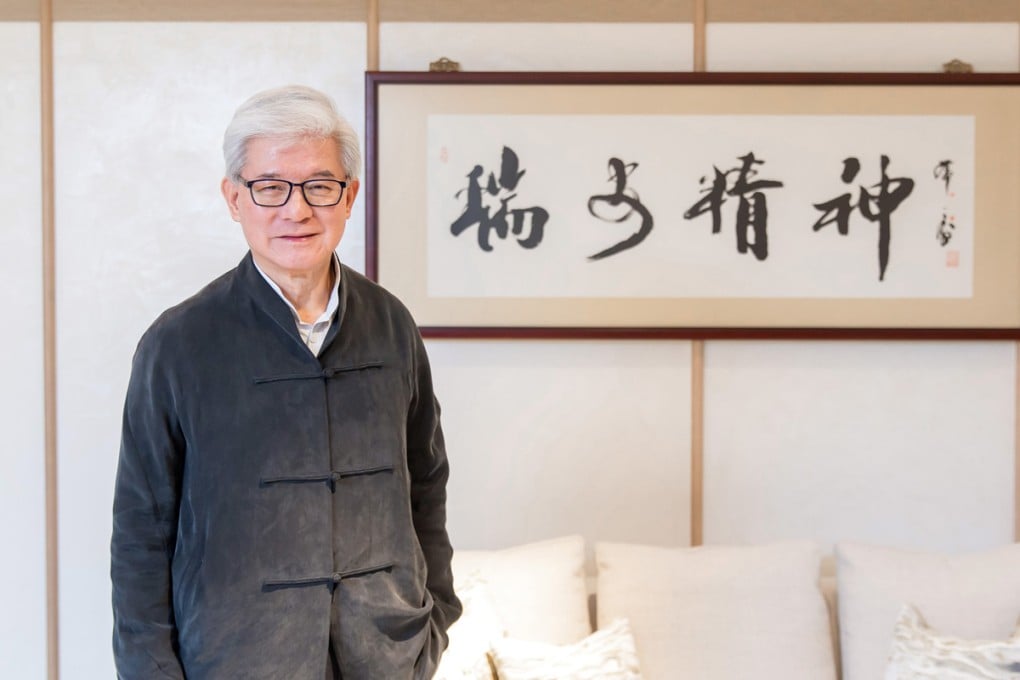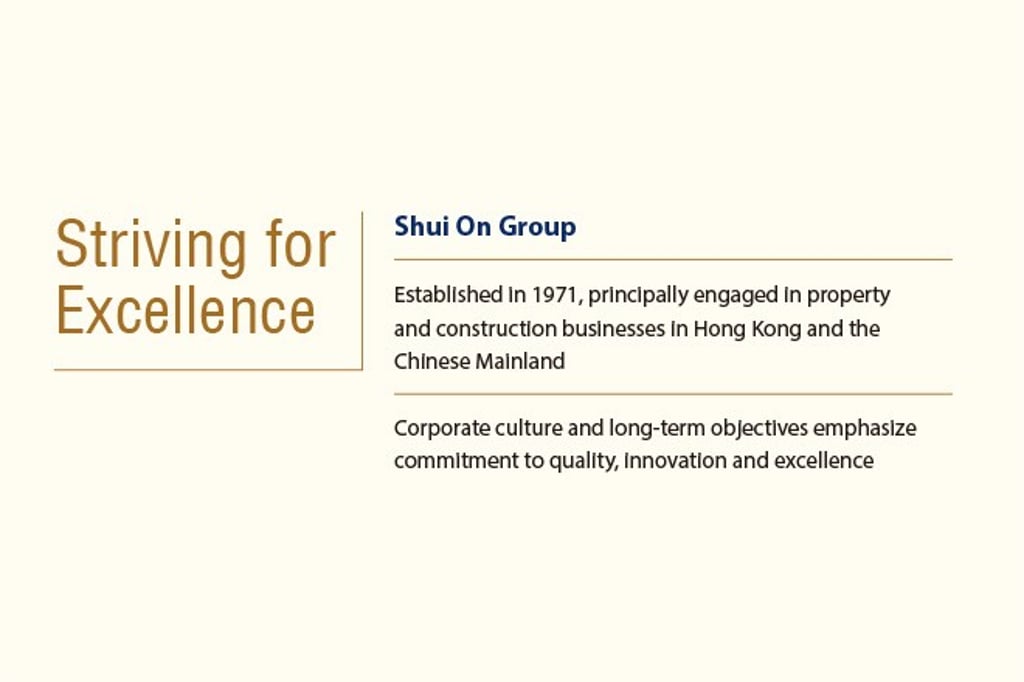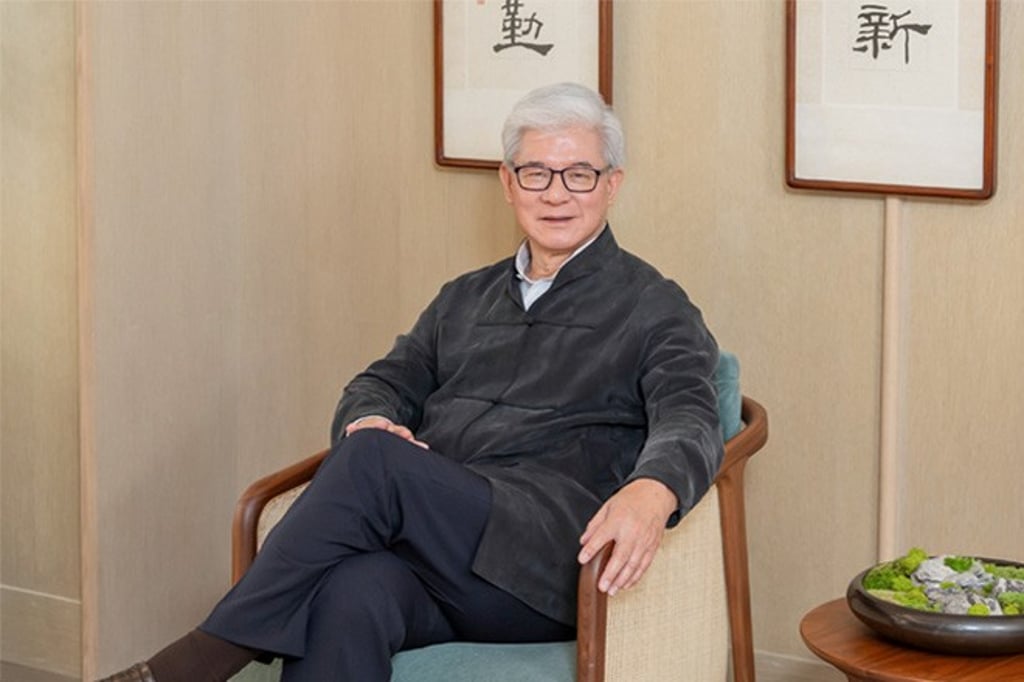Guiding Light
Issues arising from a transition can be avoided if families set guidelines for the future, founder and Chairman of Shui On Group Dr. Vincent LO says.

[The content of this article has been produced by our advertising partner.]
From personal experience and close observation of others in a similar position, Dr. Vincent Lo Hong-sui has learned that passing on the wealth, assets, values and culture of a family- centered business to succeeding generations is never easy.
Differences of opinion are bound to occur in a situation where big decisions must be made about everything from corporate structures and strategies to investment priorities, management philosophy, timescales, and the assignment of individual responsibilities.
But all those matters can be discussed and resolved, with the avoidance of acrimony and angst, if the parties involved can agree on a basic set of ground rules.
These guidelines should be realistic, practical, forward-looking, and formalized. They should recognize a clear distinction between the operating business and the family. They should also allow for the possibility of evolution and change as the next generation comes into the picture and naturally assumes more influence over day-to-day calls and the direction of the business.
“Every family is different,” says Lo, the founder and Chairman of Shui On Group, the Hong Kong-based property firm which, over the past few decades, has done much to transform the urban landscape of central Shanghai. “But it is important to plan early, so things can be in place and the younger generation can understand and participate in the process.”
A broad consensus
A good starting point, Lo suggests, is to find a broad consensus on principles, targets and goals. There is no cause to rush such talks, which should also deal with fundamentals like who can participate in decisions, requirements for working in the family business, causes or charities to support, and values to uphold.
“With my own family, I put the emphasis on integrity and being able to contribute to society,” he says. “We have written our own family constitution to iron out the principles and the sensitive issues and agree on shared values.”
Such discussions usually start at home. At some point questions will inevitably arise about who will lead the business in the future — for instance, whether seniority or merit will be the determining factor — and when and how any transfer of control will happen.
“On the asset side, you have to put in a fair and transparent system on choosing the right family member to lead or participate, so family members can accept it is the best choice,” Lo says. “Obviously, a lot of the older generation want to see everything done their way, but they have to accept that the future is going to be different, and you need to establish a mechanism to deal with that.”
Establish a family council
In his case, that meant setting up a family council to handle such matters, along with inviting respected outside experts to offer advice and bring objectivity to the discussions. This helped to set clear criteria for what sort of person any successor must be, and what experience, general qualifications and track record are required.
“Traditionally, most Chinese firms base succession on seniority, but the eldest son or daughter might not be the best candidate,” Lo says. “That’s why I emphasize there should be a proper procedure in place.”
Having that procedure in place, he believes, would help to promote overall harmony, as do the annual family gatherings which take place. The agenda for these meetings may include a review of results and achievements for the past year. But they are also an opportunity for individuals to put forward ideas, report on personal initiatives, flag concerns, or simply say what’s bothering them.
“Meetings and constant communication are vitally important, so that everyone feels part of the bigger group,” says Lo, who also organizes a separate business council where he expects his two children and other chosen advisers to have a full say. “I need to allow them to voice their opinions, but most of the time when there are difficult opinions they still look to me for decisions. When the patriarch is still around, it is much easier.”
As part of the general training process, his children have had the chance to take a leading role in key businesses or sit on the board as a controlling shareholder. In this way, they have gained a view of macro conditions and come to understand the work of a chief executive in managing teams, implementing strategies, timing investments, and achieving objectives.
“But the family should not always intervene in the management of the business if they hire someone from outside to run it,” Lo says. “High-caliber people won’t accept that.”

A sense of pride
The group’s main focus is still the China property market. With the major correction there dragging on, the pace of investment has slowed, though opportunities do exist to acquire prime sites in good locations with an eye to future development.
“I believe China, a market we know well, will be the future,” Lo says. “But I will bring that view to the family council and the business council and see if they agree with me.”
In other respects, there is an understandable sense of pride in knowing that the corporate mission statement he wrote around 40 years ago still holds true. It has shaped the way the group’s companies are run and has inspired a philosophy that aims at growth, improvement, doing one’s best, and leaving a positive legacy which goes beyond the confines of the current business.
“We need to continue to help young people to be successful,” Lo says. “I love the property business, but I think the younger generation should branch out and look more at technology. But they must know what they are doing, be totally into it, and get their hands dirty. I don’t see success coming in any other way.”
For the handling and investment of private family assets, it is similarly important to keep up with the times. In essence, that means not just looking for regular returns, but also using available funds to do something more, whether through philanthropy, education, or supporting new ventures.
“In this, I always emphasize the family values and culture,” Lo says. “You need to know what you are and what you want to be. I believe we, as a family, want to make progress, be ahead of the times, and help to shape what our industry will be like in 20 years in a very objective and systematic way.”
